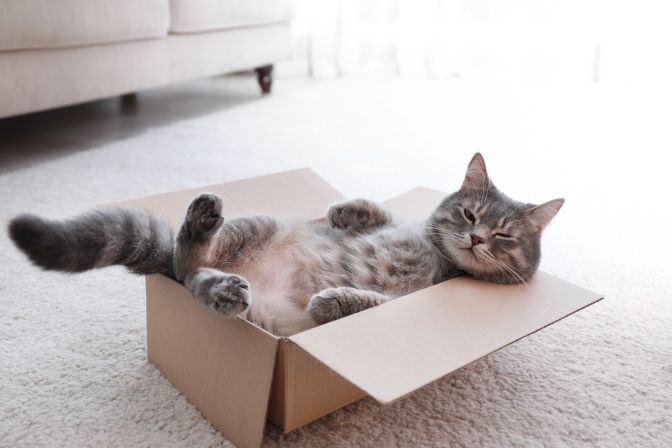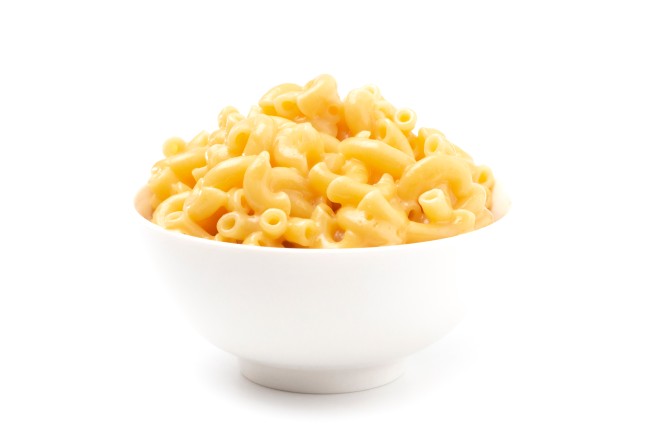
Connect with a verified veterinarian in minutes. Licensed vets are available 24/7 to answer your questions. No need to worry about your furry family member.
Cats can sometimes do the strangest things, one of those is chewing cardboard. They love boxes and anything else made from cardboard. There’s something infinitely fun about cardboard boxes, tubes, and packets. The material has some hold on a cat’s mind, and many of them can’t seem to leave it alone!
While chewing cardboard can be fun for cats, swallowing it is another matter. Has your cat eaten some cardboard? As you worried the cardboard will make your cat sick? If so, then you’ve come to the right place for some advice.
In this article, we’ll take a look at cardboard and whether or not it can make your cat sick. Let’s get started!
What is Cardboard?
Cardboard, sometimes referred to as corrugated cardboard, is a material that’s made from paper pulp and cellulose. The resulting material is strong and light, making it ideal for boxes and packing material, plus much more besides.
Other benefits of cardboard include that it’s recyclable, renewable and reusable.. There are also several types of cardboard available, which can be used in many different ways, plus it is a relatively cheap material compared to some others.
Cardboard is also a material that is much loved by cats! But why do cats eat cardboard? Can cardboard make cats sick?
Cardboard & Cats
As to why cats may choose to eat cardboard, there’s no one answer to that question. Some cats may just be having fun and accidentally ingest the material. For other cats, it is due to their prey drive, which ends in them eating the cardboard after it’s been “caught.” In other instances, it’s possible for a cat to eat non-food items due to a condition called pica.
The good news is that cardboard is not toxic to cats; so it won’t cause any symptoms of poisoning. However, cardboard is a relatively indigestible substance so it is not a good thing if your pet swallows it. If your feline companion only eats a small piece of cardboard, then the chances are that he will be just fine. The small piece of cardboard will pass harmlessly through his digestive tract and come out in his poop.
Problems are more likely to arise if your cat eats a large amount of cardboard though. A dangerous intestinal obstruction could occur, which is a medical emergency. When a cat eats a large amount of cardboard, the material can form into a clump that blocks the digestive tract. This blockage can happen anywhere between the stomach and the intestines, causing damage to tissues in this area and stopping food from being able to pass through If this condition is left untreated, it can lead to death.

Review symptoms, medications & behavior to keep your pets healthy with a Vet Online in just minutes.
Ask a Vet Live NowSymptoms of an Intestinal Blockage in Cats
You may notice these symptoms in your cat if he has eaten a large amount of cardboard:
- Vomiting
- Abdominal pain/swelling
- Lethargy
- Lack of interest in food or drink
- Weight loss
- Drooling
- Diarrhea
- Constipation
If you notice your cat showing any of these symptoms, then you must call the vet immediately. This is a medical emergency and your pet will need treatment as soon as possible.
Your cat will stand the best chance of recovery if he receives prompt medical care. Calling your vet as soon as possible could save your cat’s life.
Connect with a verified veterinarian in minutes. Licensed vets are available 24/7 to answer your questions. No need to worry about your furry family member.

Rebecca MacMillan, BVetMed BSAVA PGCertSAM MRCVS
This article has been reviewed and approved by an independent Veterinarian: Rebecca is a companion animal vet who has always had a passion for writing and client communication. Since her graduation from the Royal Veterinary college in 2009 she has gained a wealth of experience in first opinion small animal practice, in both clinical and managerial roles. She currently works in the South West and deals with a variety of routine and emergency appointments, but particularly enjoys medicine cases. Outside of work and writing, she enjoys spending time with her family, including her bouncy flat coated retriever George!
Review symptoms, medications & behavior to keep your pets healthy with a Vet Online in just minutes.
Ask a Vet Live Now




